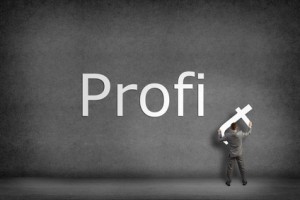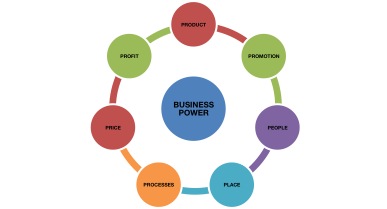It’s not because things are difficult that we dare not ventre, it’s because we dare not venture that things are difficult ~Seneca Jo
There are seven important components of a business. I have chosen to refer to them as the 7P’s that determine “Business Power”.
Let’s briefly highlight the importance of each of them.
#1. Product
As a business, what you market and sell to your customers are your products or services. Your business activities is therefore geared towards the provision of certain goods and services to meet the needs or solve the problems of your customers.
Expectedly with a good product or service comes customer endorsement and value appreciation. Just as the quality of orange juice depends on the nature and quality of the orange fruit, the value of your business will depend on the quality of your products and services.
#2. Promotion
It doesn’t matter how great your products or services are, if customers cannot find you, there will be no exchange of value and there will be no sales.
As a business, you have the responsibility of educating your target market about your products and services in a manner that enables the potential customer make a well informed decision to engage with you or not to engage with you.
The purpose of promotion is to create a perception in the mind of prospective clients or customers that your products or services offer a better value than that of your competition.
#3. People
People are related to your business in the following ways:
- Internally as employees who work to ensure that your products and services are consistently delivered to your target market
- Externally as customers who receive value from the consumption of your product or service
- Partners such as suppliers, shareholders and financiers who add value by complementing or working together with you to improve the quality and quantity your products or service.
Business is thus about forging and maintaining essential people relationships both internally and externally.
#4. Place
You need to operate from a location which would enable you reach your target market. Factors to consider include distance to market, accessibility for employees and customers, security and comfort for employees.
Many businesses today are not located in one place. Thus location can be distributed.
While you may physically work from a particular location, customers and suppliers may access you via other locations such as a retail shop front or online via the internet.
For some types of businesses, the internet has made the issue of physical location not so important.
#5. Process
In every business, there are sets of processes. Processes are the ways in which you carry out your business activities.
Examples of some types of processes in business include:
- Strategic Planning
- Staff Training
- Product Manufacturing
- Administrative Policies
- Sales
- Procurement
- New Product development
- Quality control
It is the proper structuring and adoption of excellent business processes that gives rise to a well-managed business. These processes will become entrenched as systems and culture which will make your business unique.
#6. Price
The pricing of your products and services will require knowledge of the market, price of competing products and services, buyer orientation, realistic profit margins and trends in the market.
Product pricing thus demands some special skills of juggling these variables such that your products and services are not over or under priced. There is a balance to be achieved in keeping customers satisfied and maintaining a healthy profit margin.
#7. Profit
Profit is one of the benefits that result from owning or investing in a business. A business must provide some measure of financial returns for its owners and managers in order to encourage their continued involvement and investment.
Profit in its simplest sense results from the business having more financial gain than inputed cost. A loss will result if input costs exceed income from sales. A continuos or prolonged loss will result in an unprofitable business that will be difficult to sustain.
A profitable business has the opportunity to pay dividend to its investors and have money set aside for investments in the growth and development of the business.
The Purpose Of A Business
The 7P’s will help a business fulfil its two main purposes. The main purpose of a business is to:
- Create value for its customers by meeting their needs with its products and services.
- Create value for its owners and share holders by meeting their needs which will include – wealth creation, financial security, independence, better quality of life and entrepreneurial drive.


